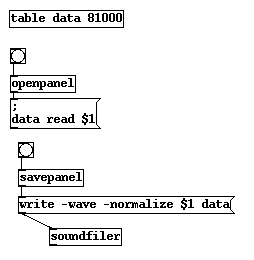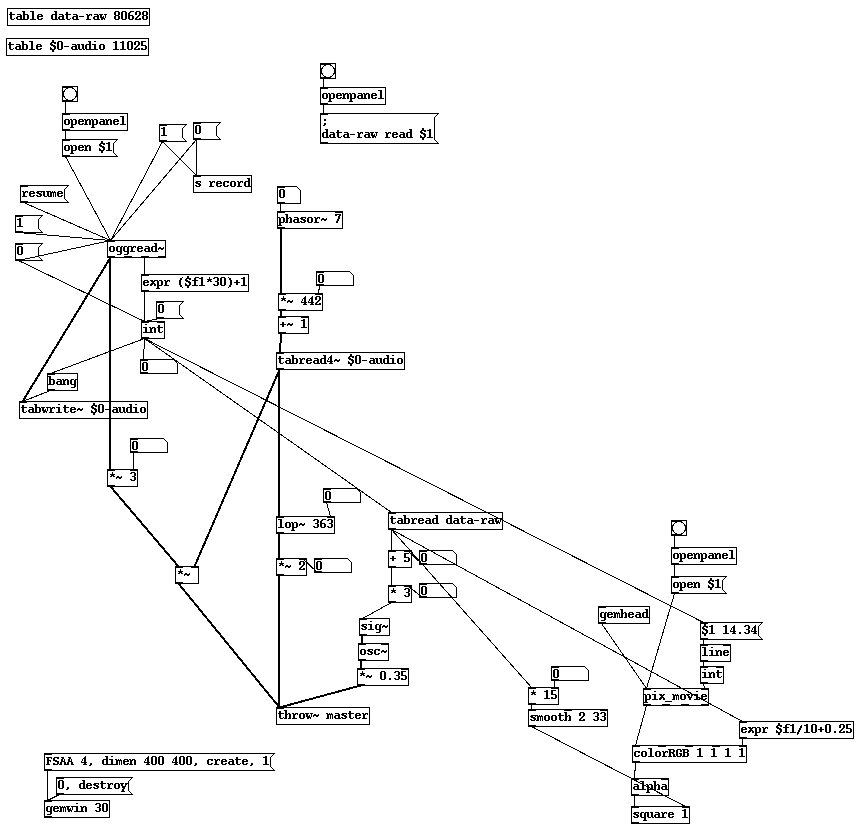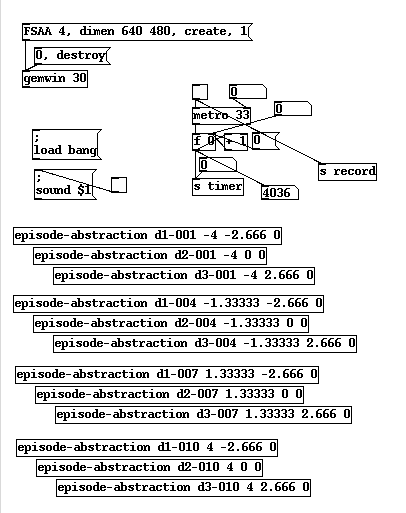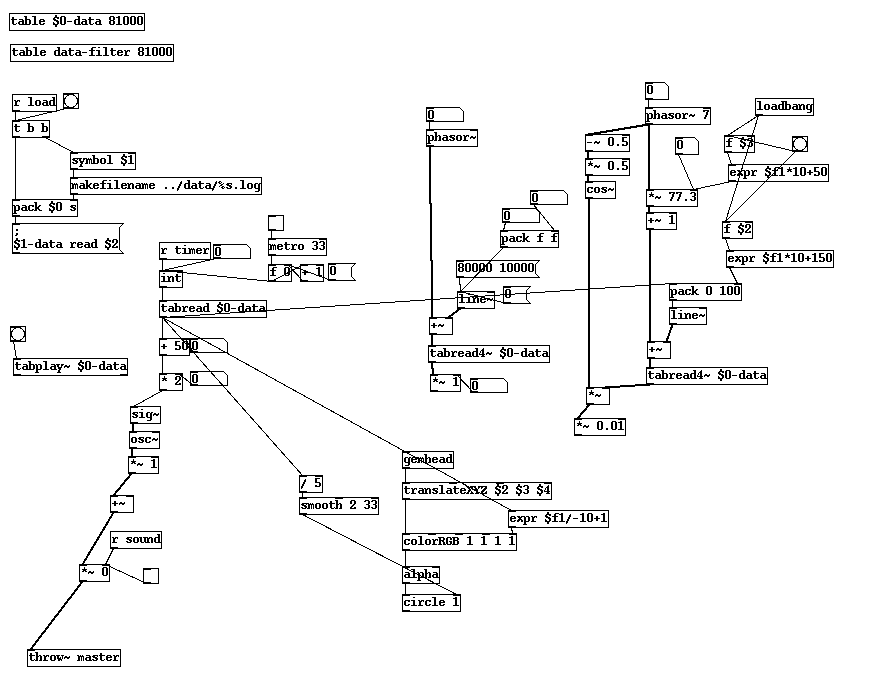Pure-Data & GEM: Difference between revisions
Jump to navigation
Jump to search
No edit summary |
No edit summary |
||
| (One intermediate revision by the same user not shown) | |||
| Line 17: | Line 17: | ||
[[Image:single-episode.png]] | [[Image:single-episode.png]] | ||
=== Patches can also be nested, so that an object can contain a patch. Here is main patch === | === Patches can also be nested, so that an object can contain a patch. Here is main patch: === | ||
[[Image:multi-episode-parent.png]] | [[Image:multi-episode-parent.png]] | ||
=== Where "episode-abstraction" contains the following patch: | === Where "episode-abstraction" contains the following patch: === | ||
[[Image:multi-episode-child.png]] | [[Image:multi-episode-child.png]] | ||
Latest revision as of 01:59, 8 December 2006
Pure-Data is a graphical data-flow programming environment similar to Max/MSP. To find out more about Pure-Data visit the [community page]
Operations in Pure-Data are objects. Objects are selected by typing there name in a box. This is a lot like calling a function or instanciating a class. Where Pure-Data differs is that you relate these operations by drawing connections between them. A Patch is a collection of connections and operations. Here is a really simple example:
GEM (Graphics Environment for Multimedia) adds graphics and video functions to Pure-Data.
I used Pure-Data to generate the Visualizations and the Sonification




